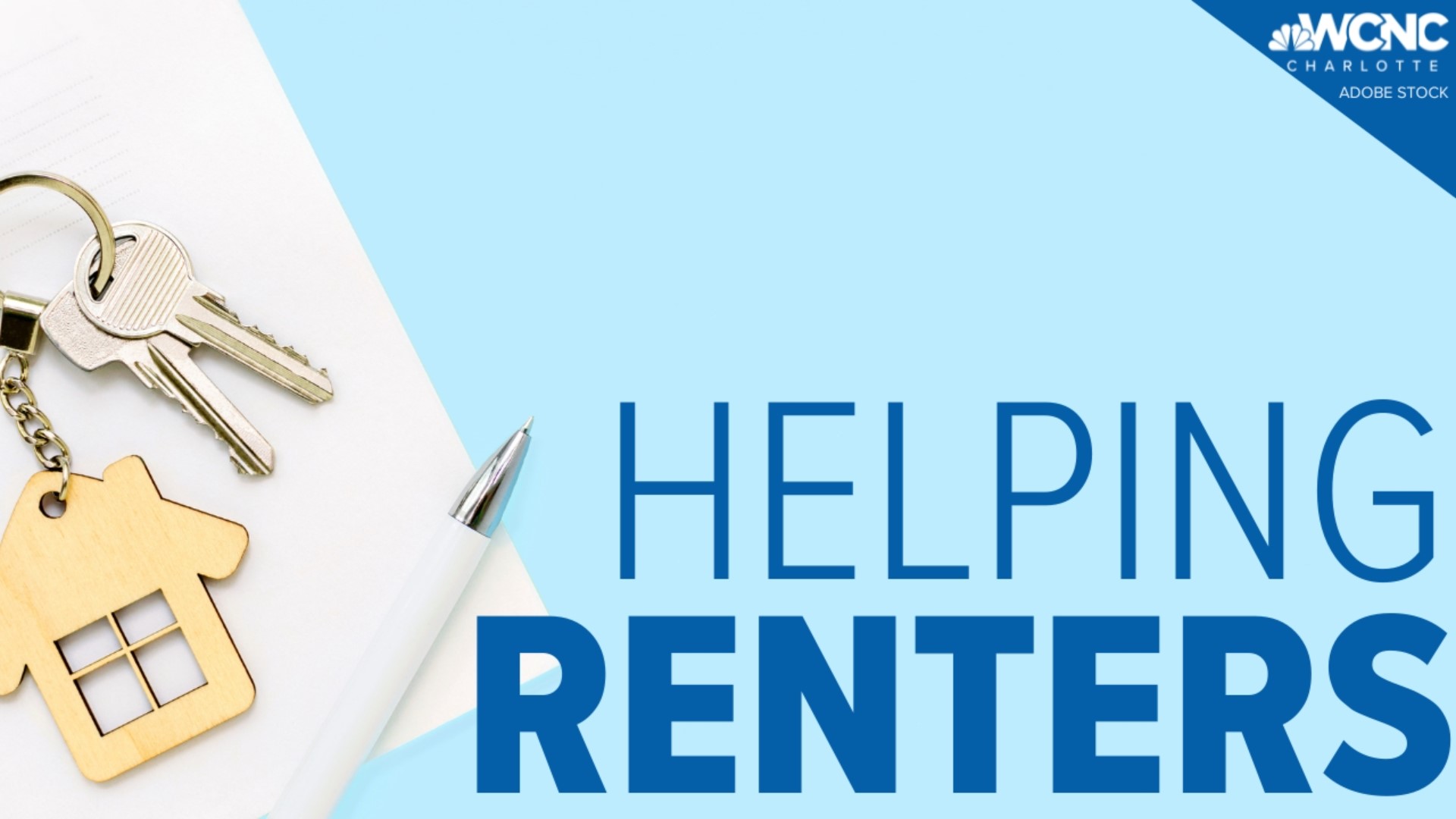CHARLOTTE, N.C. — Rent hikes are causing a headache for some people living in the Charlotte region with some renters seeing the cost of their homes go up drastically.
As the Charlotte region continues to grow, so does the cost of living and some people are struggling to keep up.
Jack Michel is renting a home in the Steele Creek area while he is looking for land to build a house for his family, and he is already feeling the weight of renting.
“Getting a rent -- a sizable rent increase like we've gotten almost 10% year over year, it's painful," Michel said. "It puts a strain on the budget."
He expected his rent to go up after his year lease was up but not by hundreds of dollars.
“The earlier offer we were presented ranged from $2,400 to $3,000 annual increase which adds up year over year,” Michel said. “The normal renewal offer presented to us… you're looking at $3,600 over an annual spend. That's not chump change and pretty sizable for what we pay.”
It’s a jump in costs many renters face in the Charlotte region.
“The Charlotte region has gone up about 8.2% from this time last year and so it's definitely gone up,” realtor Mike Hege with Compass said. “You have to think about it with the demand influx of people still moving from all over the country to Charlotte, North Carolina, and it remains a very desirable area, so you have supply and demand.”
From supply and demand and turnover expenses to inflation Hege said that are several factors that drive rent prices up. He added that landlords are also seeing their expenses increase.
“If your insurance has gone up, your taxes have gone up and just generally, the cost for doing repairs have gone up,” Hege said. “In general, some of that has to be attributed to increasing the reserve fund from an owner’s standpoint and then passing that along to the tenant in the form of a rental increase.”
Keep in mind in North Carolina, there is no limit on how much landlords can raise the rent. Sen. Lisa Grafstein said that needs to change.
“We’re hearing more and more about housing affordability,” Grafstein said. “It’s really about folks who have typically been capable and able to, based on their income, pay market rate rents. And they're seeing that ability kind of drift away, because of the ways that rent has increased and that wages have not kept pace with rents.”
Grafstein recently filed Senate Bill 225, a law that would give local governments the power to enact rent control measures in their districts.
“It can be anything from limitations on the percentage increase in any given year, it could be things like subsidies or vouchers to make up the difference in rental costs," Grafstein explained. "So there are lots of different creative ways to go about rent control."
She said the bill would give control back to local city leaders so they can make decisions that are appropriate for their home communities.
“Local governments really are the folks who know what needs to happen locally and have the ability to kind of assess their local situation and decide on remedies,” she continued.
The bill is new and must be assigned to a committee for a hearing. Grafstein said this is the first step to taking some weight off renters.
There are some things you can do if you face a rent increase. Hege said if you have been a model tenant, then try to negotiate, speak to the landlord directly if possible, and follow up in writing. You want to document everything.
Hege added to also consider longer leases if possible.
Contact Jesse Pierre at jpierrepet@wcnc.com or follow her on Facebook, Twitter and Instagram.

